The Web3 and AI Newsletter 6

Hello again, everyone, and welcome to all new subscribers!
This is the Web3 + AI newsletter, where we explore the intersection of blockchain and artificial intelligence. As you can guess from the AI-generated robots wearing Santa-inspired costumes, this is the newsletter's Christmas issue and last edition for 2023.
Thank you for being here! Let's dive in!
What's New in the Web3 + AI Startup World?
Fetch.ai, SingularityNET Join Forces to Fight AI Hallucination
Decentralized AI companies Fetch.ai and SingularityNET have entered a partnership aimed at curbing AI hallucinations, which they deem the major obstacle to AI reliability and adoption. The firms plan on eradicating hallucinations through Neural-symbolic integration - a technology that blends neural networks, which learn from data, with symbolic AI, which uses clear rules for reasoning.
“The potential to experiment with a variety of different configurations for multi-component AI systems, such as neural-symbolic systems, gives a flexibility of a different sort than exists in standard centralized AI infrastructures,” SingularityNET CEO Ben Goertzel said.
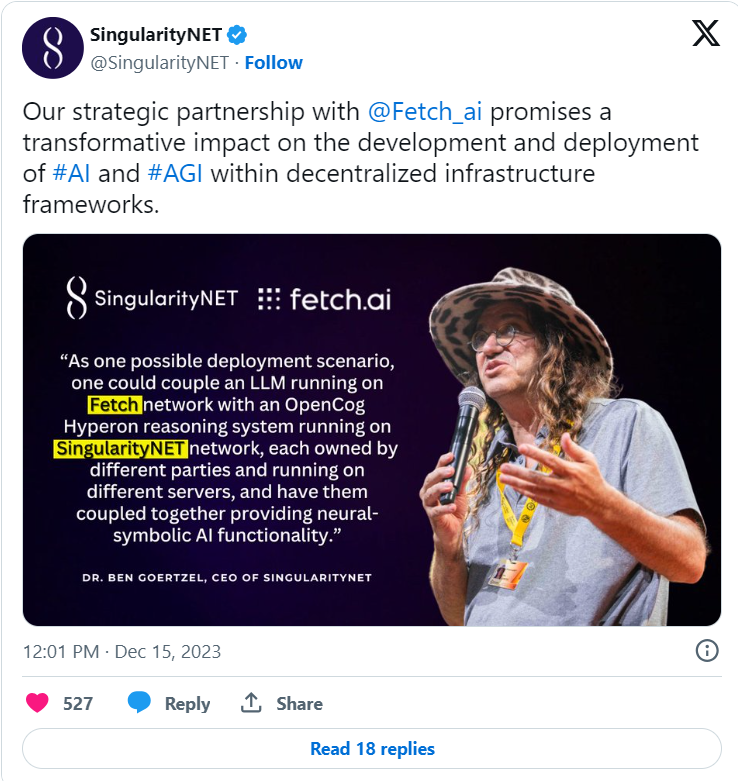
However, their expectations of success are limited:
“We don't expect to fix [hallucinations] completely, of course, but I think part of the fun with LLMs is to have the hallucination because that's where the innovation comes in,” Fetch AI founder and CEO Humayun Sheikh told Decrypt. “In a way, you have to be creative without any limitations.”
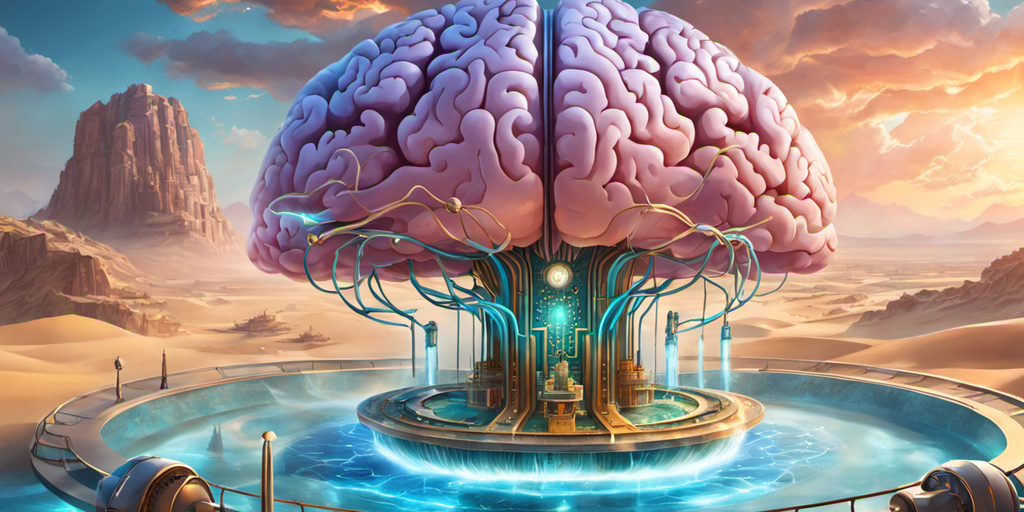
Grass Raises $3.5M to Build Decentralized AI Oracle
Wynd Network, the team behind Grass, has successfully closed a $3.5M seed round led by Polychain Capital and Tribe Capital.
Grass is a browser extension app that scrapes the web with individuals’ unused internet bandwidth and rewards users in so-called Grass Points. Wynd then sells its scraped datasets to companies in need of web data, including AI developers. The blockchain will be employed to guarantee that the collected data is unbiased.
"As a decentralized oracle for AI, Grass will produce datasets that can be traced back to their origin, making it possible to compensate people fairly for their contribution to the network,” said founders. “We’ve explored many ways to make public web data more accessible to open source AI projects, and believe that decentralization is the only way to achieve this both ethically and efficiently"
Additionally, by using browsers operated by individuals, Grass will be able to bypass some roadblocks that exist to circumvent corporate scrapers.
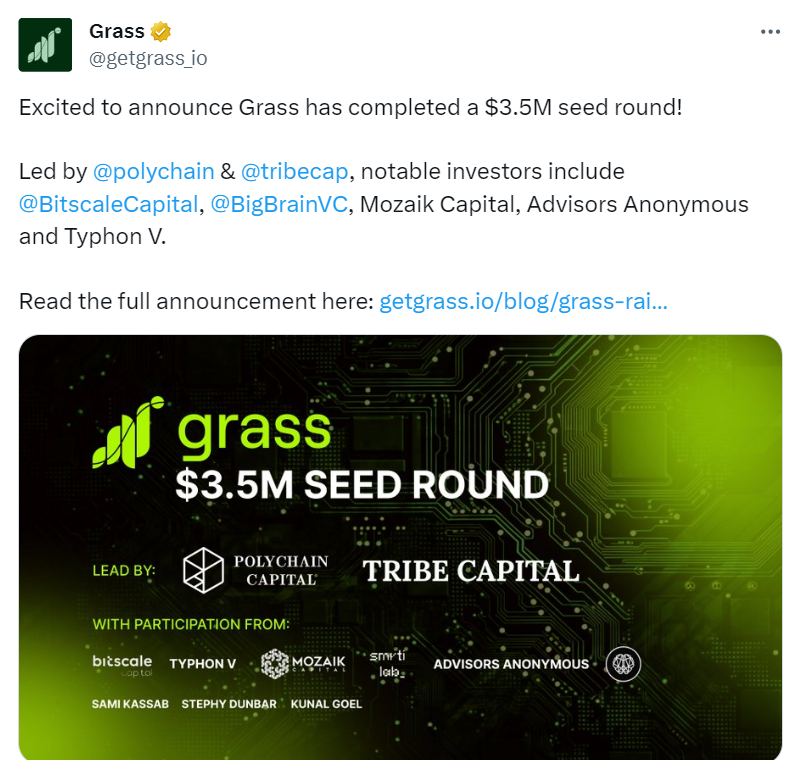

Noteworthy Podcasts, Articles, Events
Hugging Face's CEO Calls for AI Democracy
Clément Delangue, co-founder and CEO of one of the largest open-source AI labs Hugging Face, is speaking out against the excessive centralization of AI development. Moreover, he renounces the trend of big tech companies patenting machine learning models and instead calls for democratization and open-sourcing.
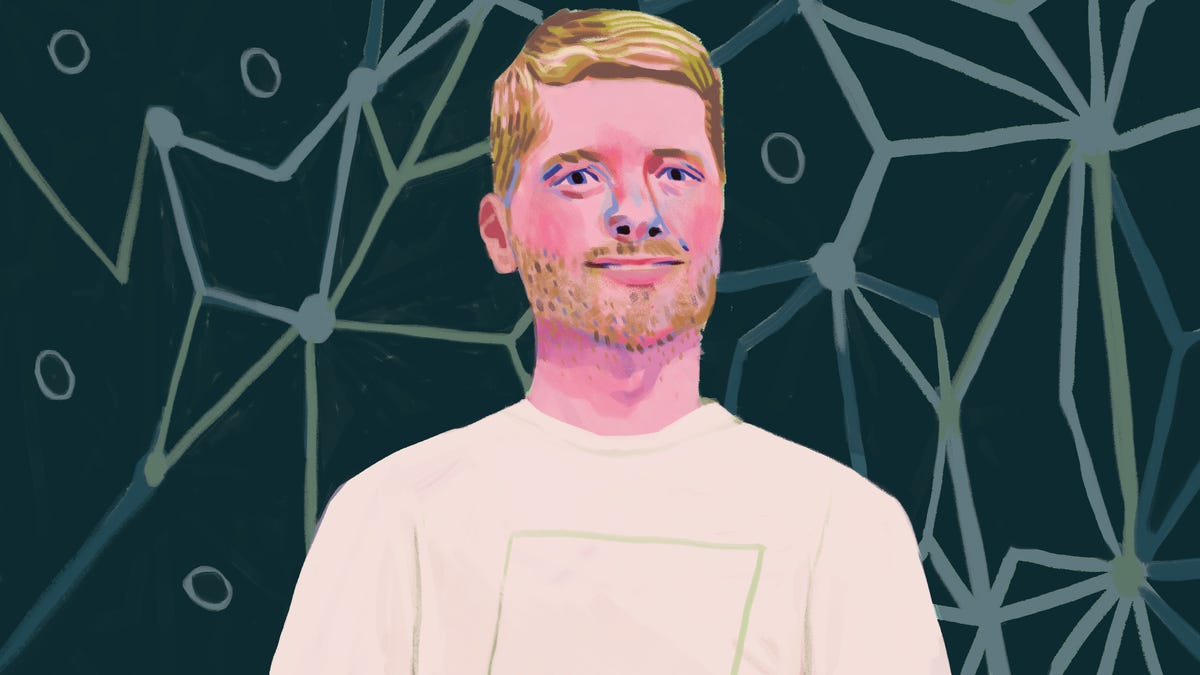
“We need more companies and organizations to share their models and datasets publicly and in open-source so that everyone can understand and build AI themselves,” Delangue tells Quartz.
Hugging Face, wittingly nicknamed GitHub for AI, has been deliberately open-sourcing Large Language Models (LLMs) for years, thus becoming the main point of reference for developers, students, and researchers alike. As a result, it has established a strong community and has contributed enormously to the understanding and progress of AI. It could be argued that Hugging Face has done more for the openness, transparency, and safety of AI than any of the tech behemoths, who heavily guard their proprietary technology and models.
“I think through the open source model, you can do things a bit differently ... you can, as a startup, empower the community in a way, and create a thousand times more value than you would by building a proprietary tool,” Delangue said in a 2021 interview.
The EU AI Act and Its Impact on Innovation
A month ago, I was a guest writer for Track My Token with a piece on the potentially negative effects AI regulation may have on innovation, and now, unfortunately, my concerns are becoming a reality. After the political compromise on the EU AI Act reached last week, the European tech sector expressed fears that the legislation may stifle competition.

The Computer & Communications Industry Association said the text largely departs from the "sensible risk-based approach" proposed by the Commission, which prioritised innovation above overly prescriptive regulation.
The organisation said that the act imposed "stringent obligations" on developers of cutting-edge technologies that underpin many downstream systems and is therefore likely to hinder innovation in Europe. This could lead to an exodus of AI talent, it warned.
"Regrettably speed seems to have prevailed over quality, with potentially disastrous consequences for the European economy. The negative impact could be felt far beyond the AI sector alone," said Daniel Friedlaender, senior vice president and head of CCIA Europe.
When adopted, the act will require startups in the high-risk category to go through a long and costly certification process, and we can only wonder how cumbersome it will be amid the EU's bureaucracy.
France Digitale also warned that the Commission can add further criteria through delegated acts, which can be risky for start-ups that "need visibility and predictability to develop their business models".
It seems like the main objective of EU legislators is to retain their first mover advantage and to enjoy the fruits of becoming the pioneering AI regulator. Driven by that ambition, the bill goes as far as to promise that "Europe will also become one of the first places in the world where citizens will be able to launch complaints about AI systems and receive explanations about how AI systems came to the conclusions that affect them". I can't imagine the manpower needed to act on every complaint by each European citizen who interacts with AI models daily. Not to mention how EU bureaucrats will explain the outputs AI systems deliver, when even builders can't always do that.
On the contrary, instead of worrying about reputation, maintaining healthy competition and supporting innovation should be among EU leaders' main goals. Do you agree? Let me know in the comment section below!
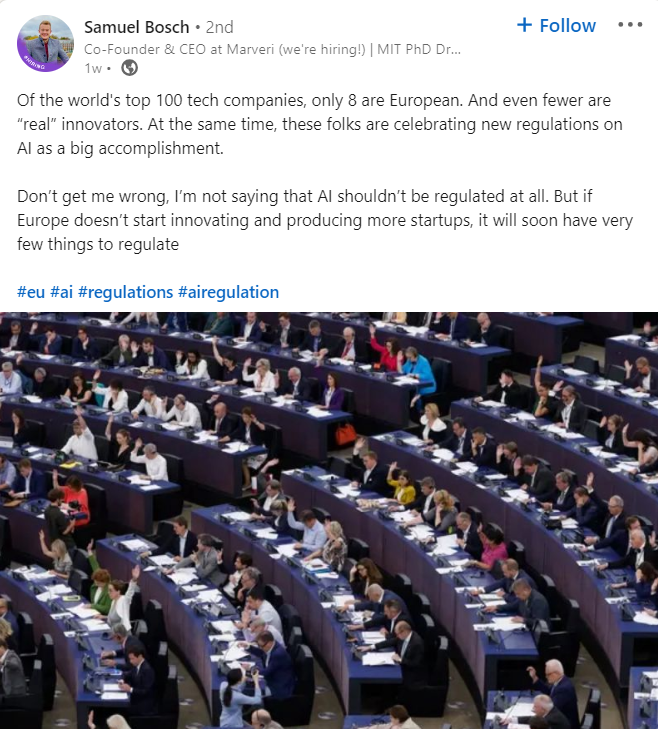
Yet, until we see the final text of the AI Act, we can only speculate. Many dispositions may still change, especially taking the forthcoming European Parliament Elections into account.
Anyway, the final edition of Web3 + AI for 2023 is a good occasion to take a look at all AI regulatory and policy efforts that took place throughout the year. I am convinced 2024 will provide even more significant developments in that regard.
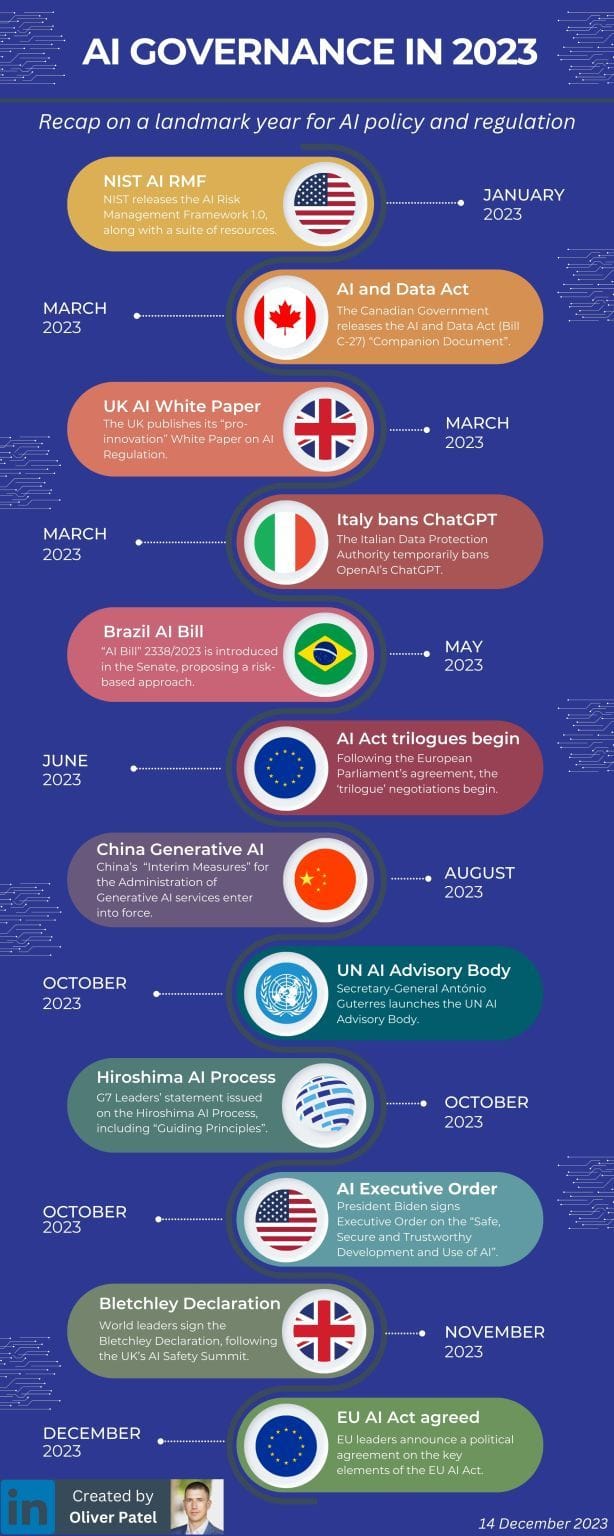
2024 Crypto Predictions Recognize AI Is Here to Stay
It is that time of the year again when we are busy reminiscing and planning our next steps forward. Accordingly, predictions of how the tech world will look in 2024 have been dominating the media landscape over the last few days, and I want to highlight a few for you to check out. And provide you with compelling Christmas reading materials 😊
It is already a tradition for Ryan Selkis, co-founder and CEO of the crypto market intelligence firm Messari, to release his annual forecast on the future of the crypto space. This year, along with investment, regulatory, and political trends, he also highlights the potential of the AI-crypto synergy and AI-powered tokens like Render Network's $RNDR, Autonolas' $OLAS, Akash Network's $AKT, and Bittensor's $TAO.
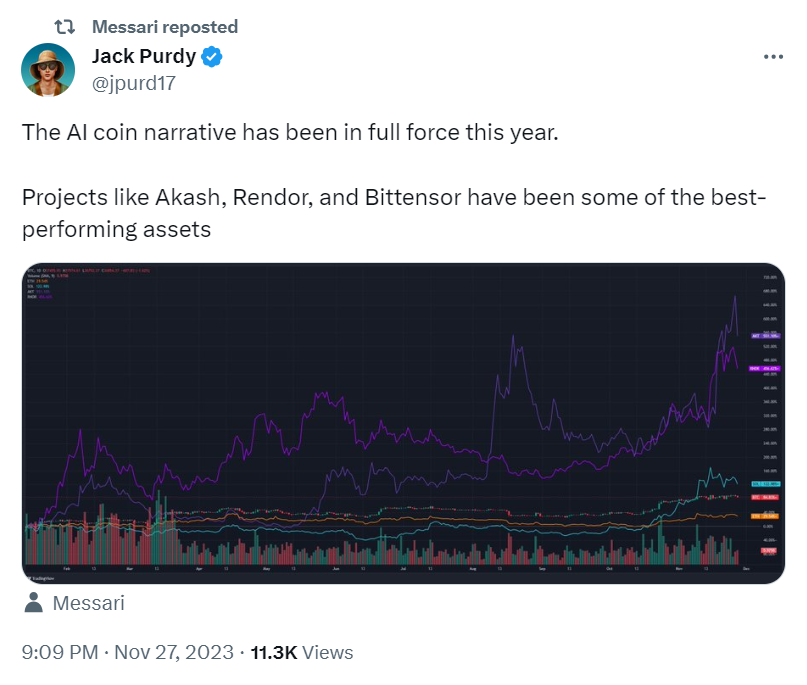
Listen to this Bankless episode to get a full round-up of Ryan's prognosis:
Pantera Capital's Paul Veradittakit also demonstrates huge optimism toward the decentralized AI space:
Today, much of the scalability problem has been solved (...) As this trend continues in the next year, we believe computationally expensive applications (applications can use up gigabytes of RAM) will become much more economically feasible on-chain in the near future. This includes vertical applications such as on-chain AI systems, Decentralized Physical Infrastructure Networks (DePIN), on-chain knowledge graphs, and fully on-chain games and social networks. All this may radically reshape the on-chain data economy, greatly improve both user and developer experience, as they are freed from onerous gas fees and stringent constraints on compute power.

Along with Paul's piece, the crypto publication CoinDesk has gathered a rich collection of predictions and analyses for the year ahead. Make sure to check them out below.
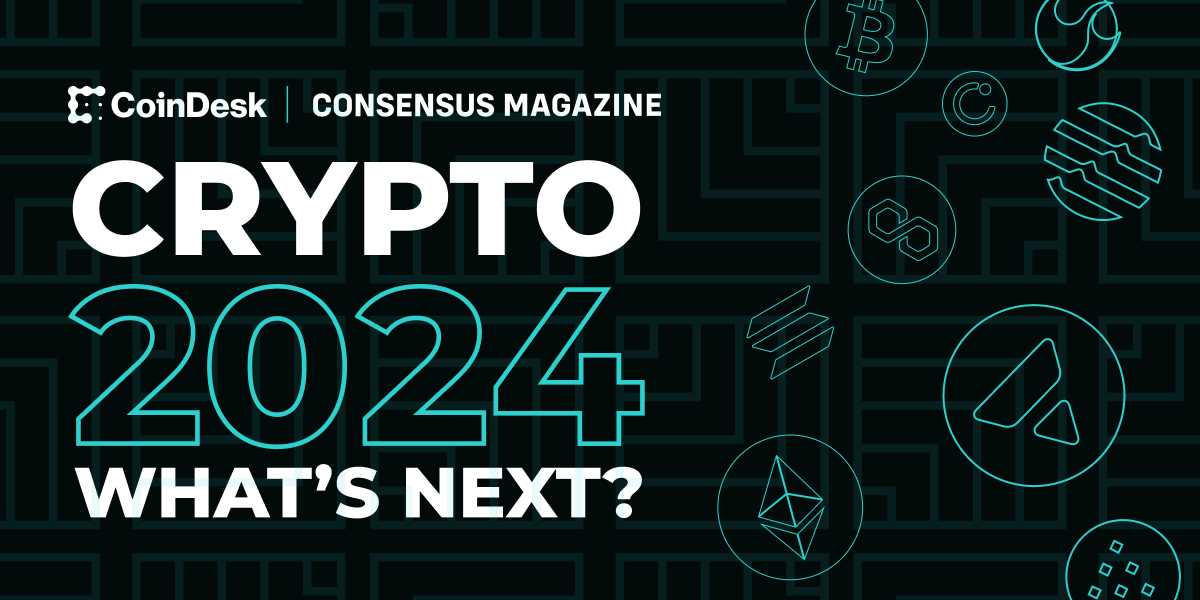
I wish Merry Christmas and Happy New Year to everyone who celebrates! Web3 + AI will be back in 2024 with many new initiatives, rubrics, and exciting guests! Thank you for joining me on that journey!
Disclaimer: None of this should or could be considered financial advice. You should not take my words for granted, rather, do your own research (DYOR) and share your thoughts to create a fruitful discussion.




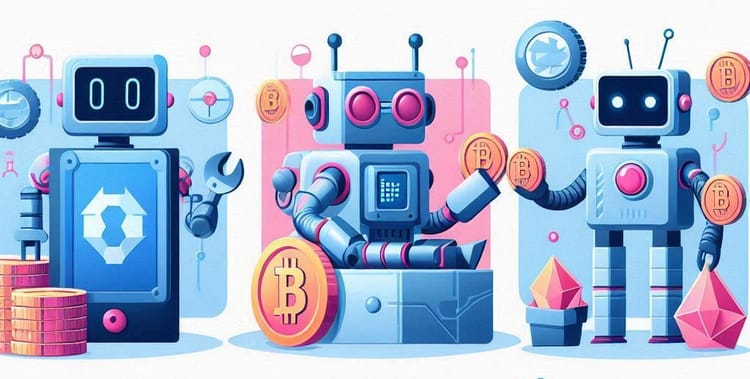
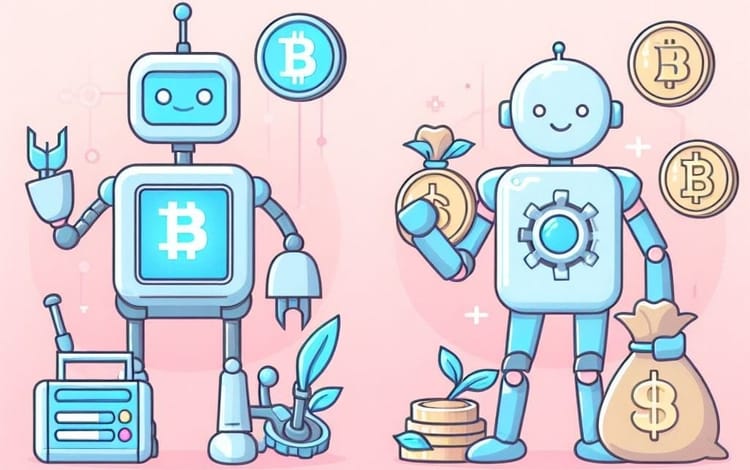
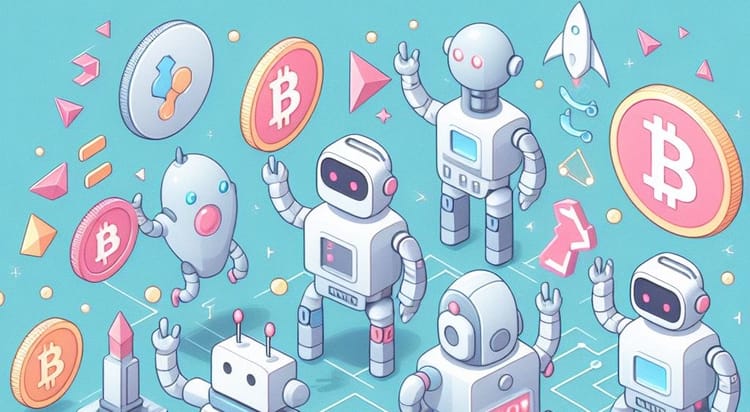
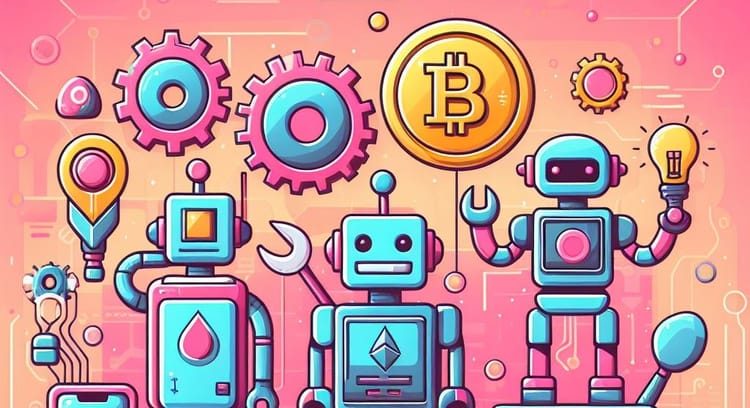
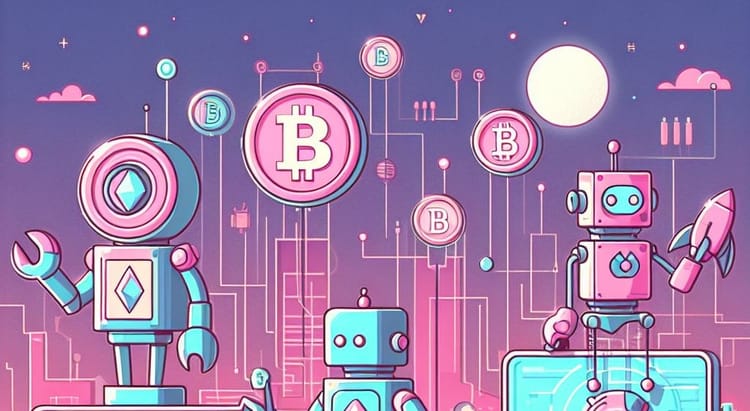
Member discussion